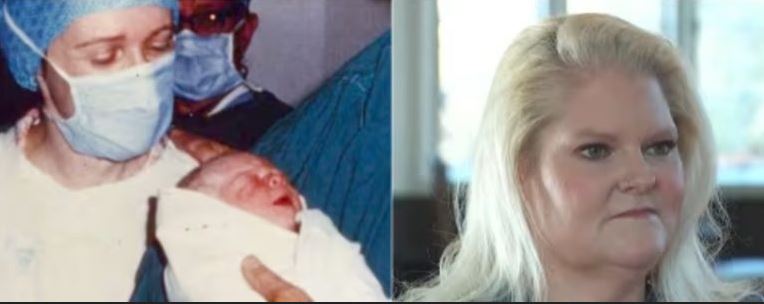46-Year-Old First IVF Baby Shares Her Story, Celebrates Pioneers In New Film
Posted by Samuel on Fri 22nd Nov, 2024 - tori.ngThe birth of Louise Joy Brown, the world’s first IVF baby, in 1978, marked a groundbreaking milestone that revolutionized reproductive science.
Now, decades later, Louise is championing “Joy”, a new film that tells the remarkable story of how her life began and the pioneers who made it possible.
ITV disclosed on Thursday that the new film tells the astonishing story of how the three pioneers of IVF battled widespread opposition.
PUNCH Online reports that In Vitro Fertilisation (IVF) is a medical procedure used to assist individuals and couples struggling with infertility.
Derived from the Latin term in vitro, meaning “in glass,” IVF refers to the process of fertilising an egg outside the body in a controlled laboratory environment.
1978 test tube baby—IVF
In 1978, headlines around the globe hailed her as the “test tube baby,” though, as Louise points out, it wasn’t a test tube but a desiccator bottle used in the groundbreaking process.
“Test tube baby” might have been a catchy headline, but what truly stuck was the awe and controversy surrounding her birth.
Born July 18, 1978, Louise’s birth, following a procedure pioneered in Britain, has been lauded among “the most remarkable medical breakthroughs of the 20th century.”
A check by PUNCH Online on Friday to her Instagram bio read, “Louise Joy Brown the world’s first #IVF baby. #IVFandProud. #MiracleBabies #Infertility #Fertility #IVFis40”
Three IVF heroes, challenges
According to the news agency, the film Joy delves into the decade-long struggle of the trio behind IVF: gynaecologist Patrick Steptoe, scientist Bob Edwards, and embryologist Jean Purdy.
Facing fierce opposition from religious groups, ethical debates, and scientific challenges, they forged a path that brought hope to countless families.
Louise reflected on their legacy during a visit to Bourn Hall, Cambridge, the fertility clinic the pioneers established in 1980.
“You can see their pride in every story of success that followed,” she said, her voice tinged with gratitude.
Louise’s parents, John and Lesley Brown, became unlikely history-makers alongside her.
“They were working-class people,” Louise shared, explaining why they were chosen for the experimental treatment.
Their story highlights the persistent inequalities in IVF access today, with many NHS patients facing lengthy waiting times and soaring costs for private care.
Inspiration: Seven rounds of IVF
Writers Jack Thorne and Rachel Mason, who underwent seven rounds of IVF before welcoming their son, bring a deeply personal perspective to Joy.
“IVF is still not taken seriously enough,” Rachel said. “People with fertility struggles deserve access to medical treatment, but IVF is often dismissed as a luxury or middle-class pursuit.”
She pointed to a recent report linking failed IVF cycles to PTSD, underscoring the emotional toll.
The film also aims to correct historical omissions.
At its heart is Jean Purdy, the world’s first embryologist, whose critical role in IVF’s creation was largely erased from history.
Purdy, who died at 39 of cancer without children of her own, was an essential force in the success of the treatment.
“It’s tragic how little recognition she received,” said actor Bill Nighy, who plays Patrick Steptoe.
“She worked in a male-dominated field where fertility science was considered second-class.”
By putting Purdy at the forefront, Joy honours her pivotal contributions and celebrates the determination of the many women who underwent early treatments, paving the way for IVF advancements.
“This film isn’t just about the science,” Louise remarked. “It’s about the humanity, the struggles, and the triumphs that brought us here.”
For Louise, Joy is more than a film—it’s a testament to how far IVF has come and a call to address the disparities that remain.
Decades after her birth made headlines, she hopes it will inspire renewed appreciation for those who helped make the miracle of life possible for so many.
***
Source: The PUNCH























































